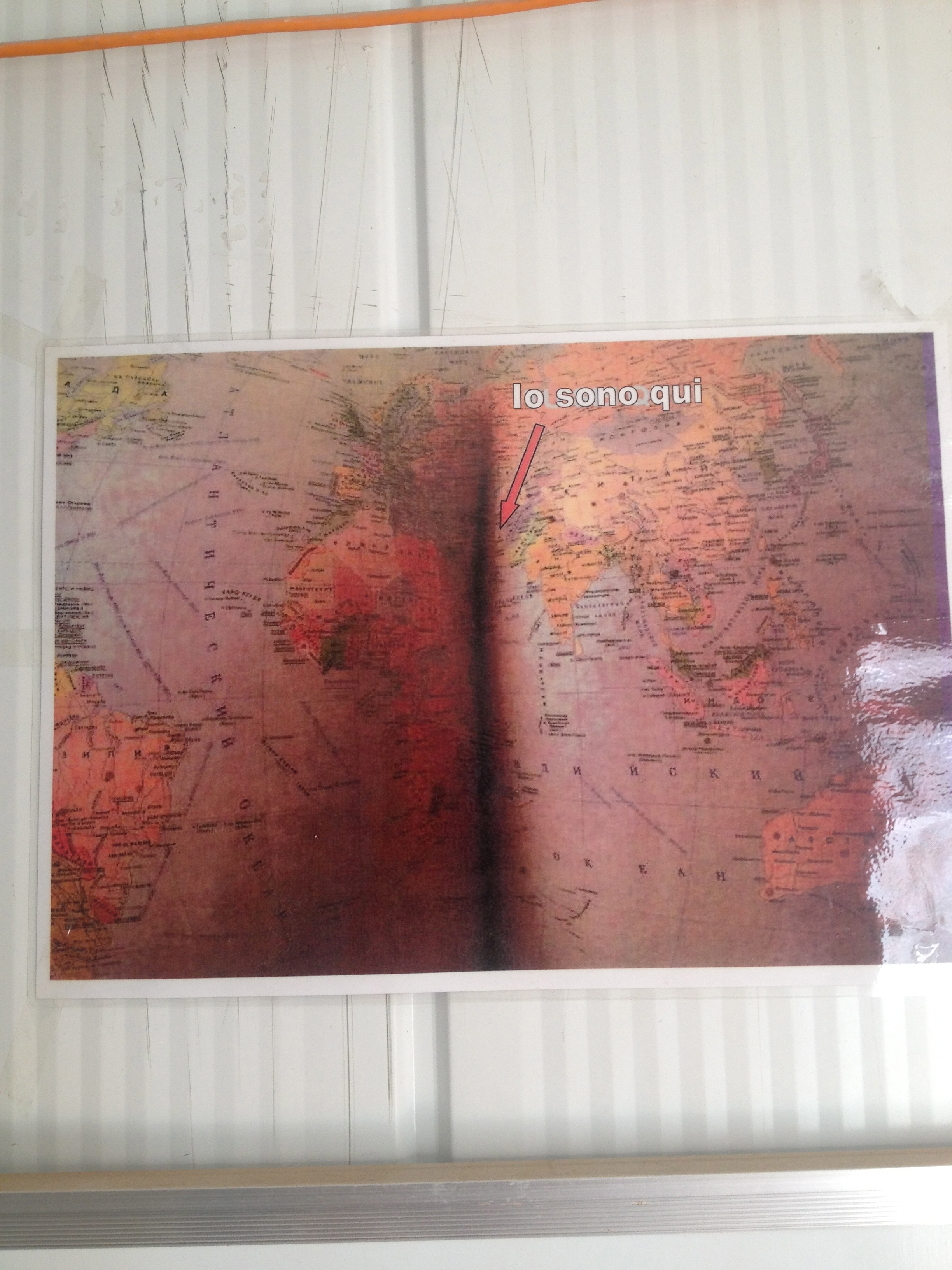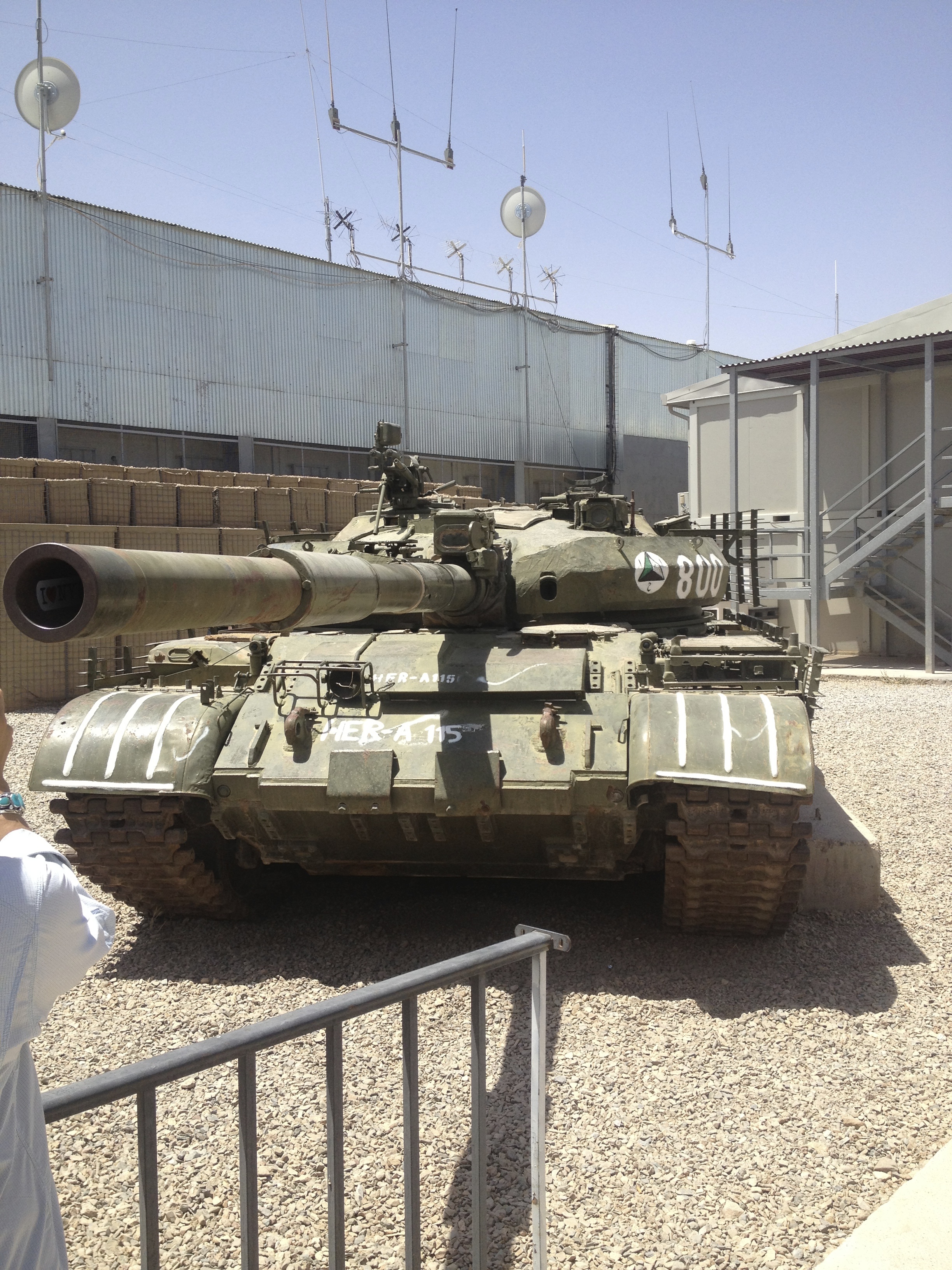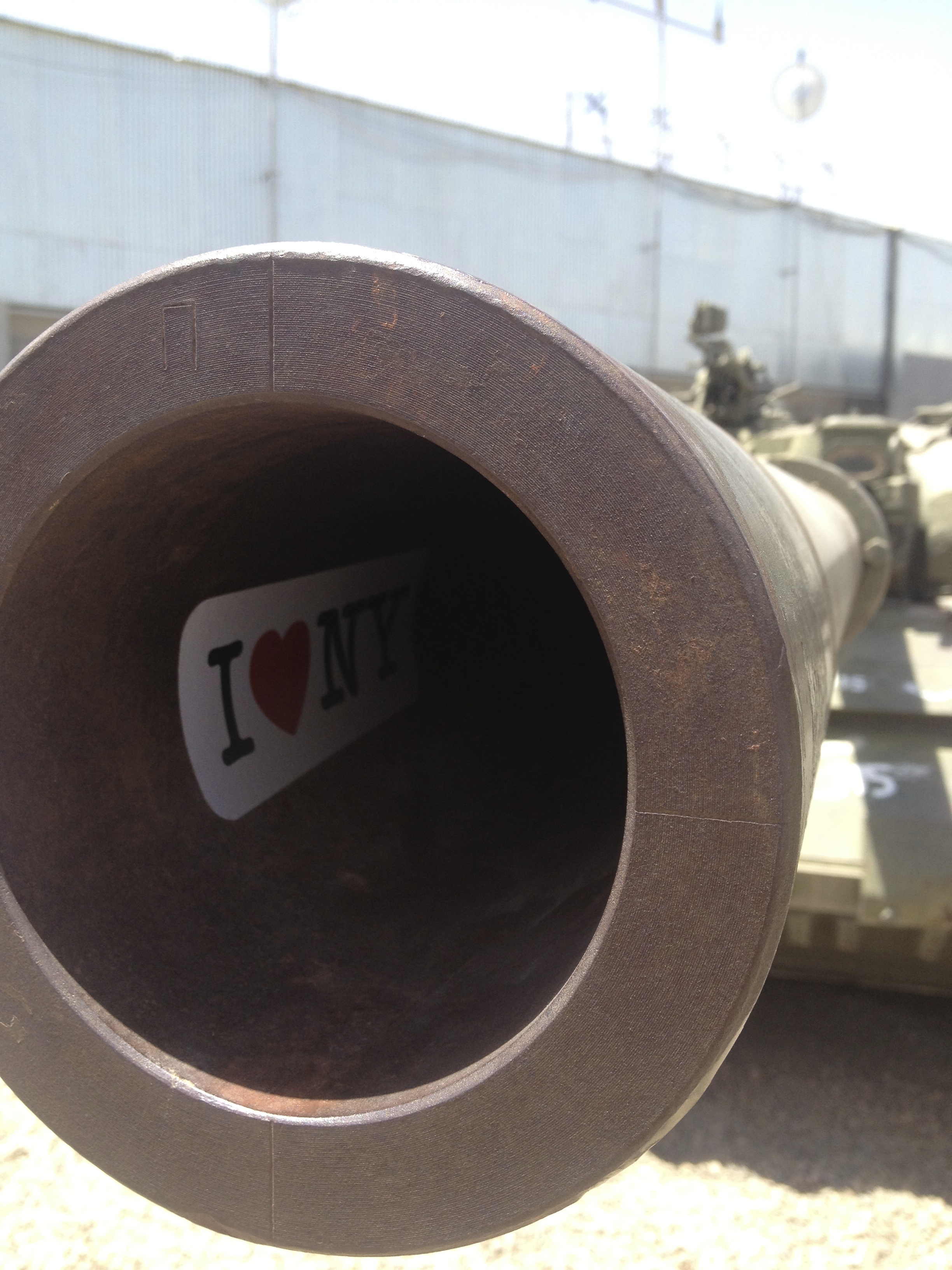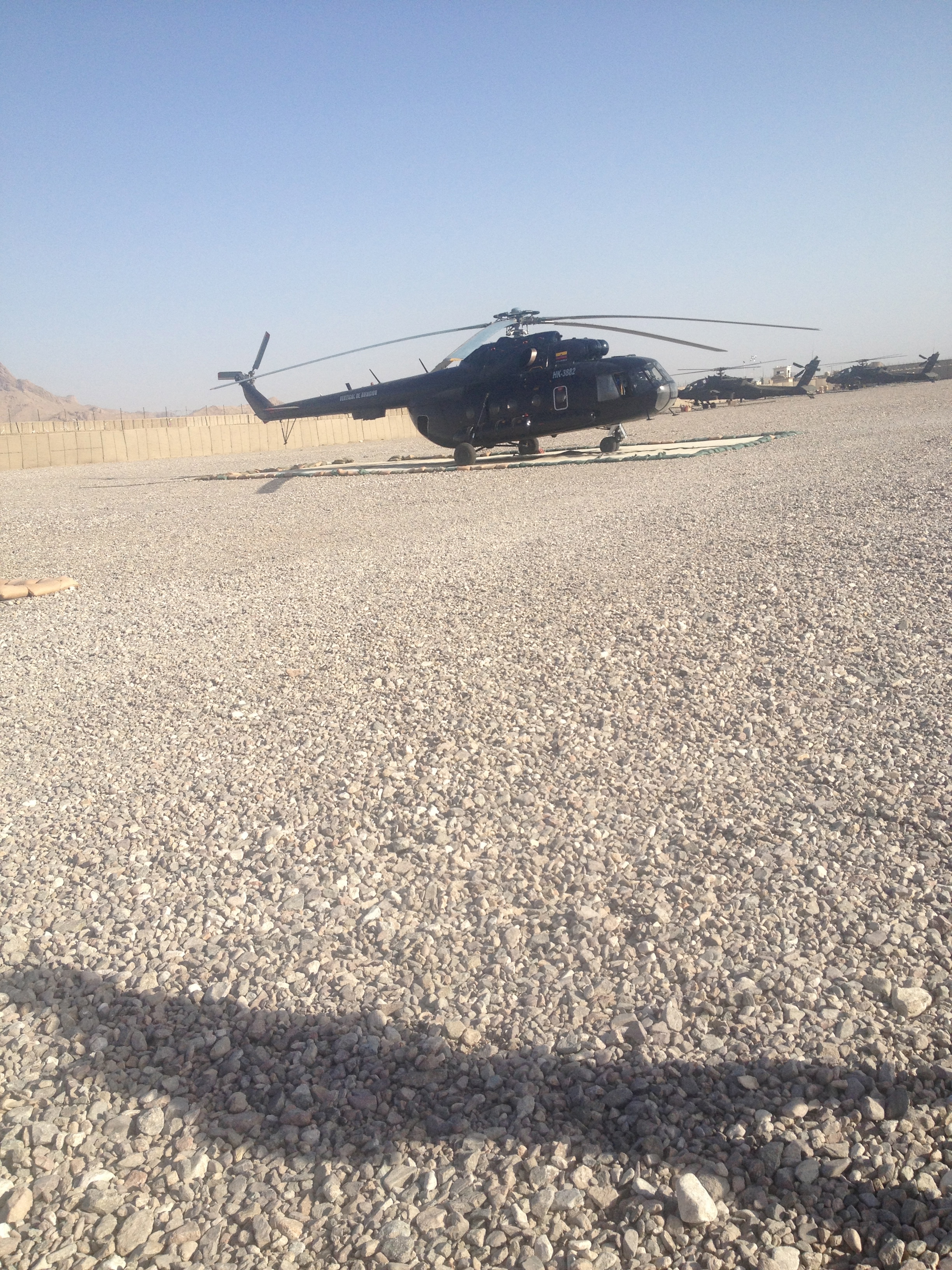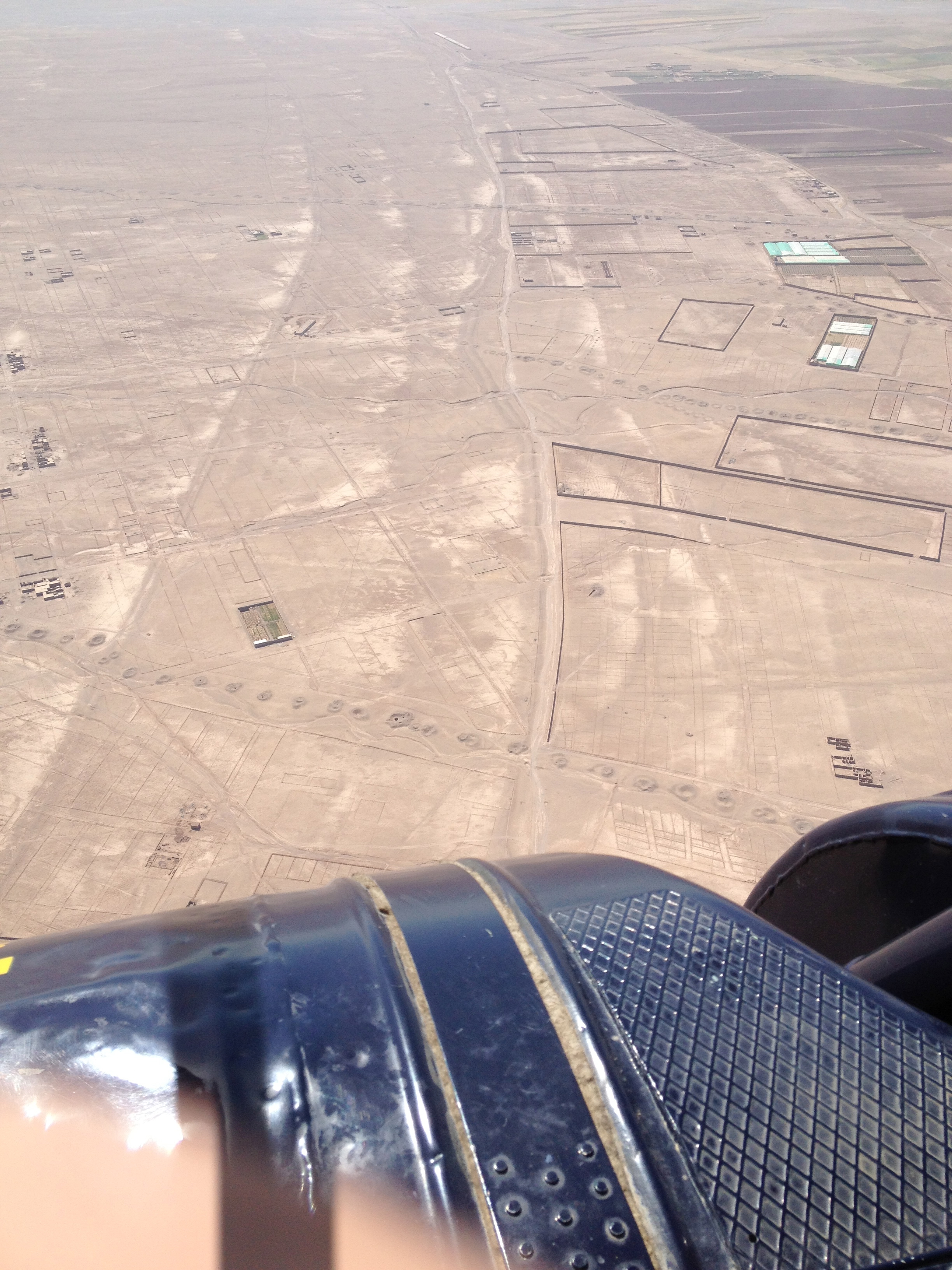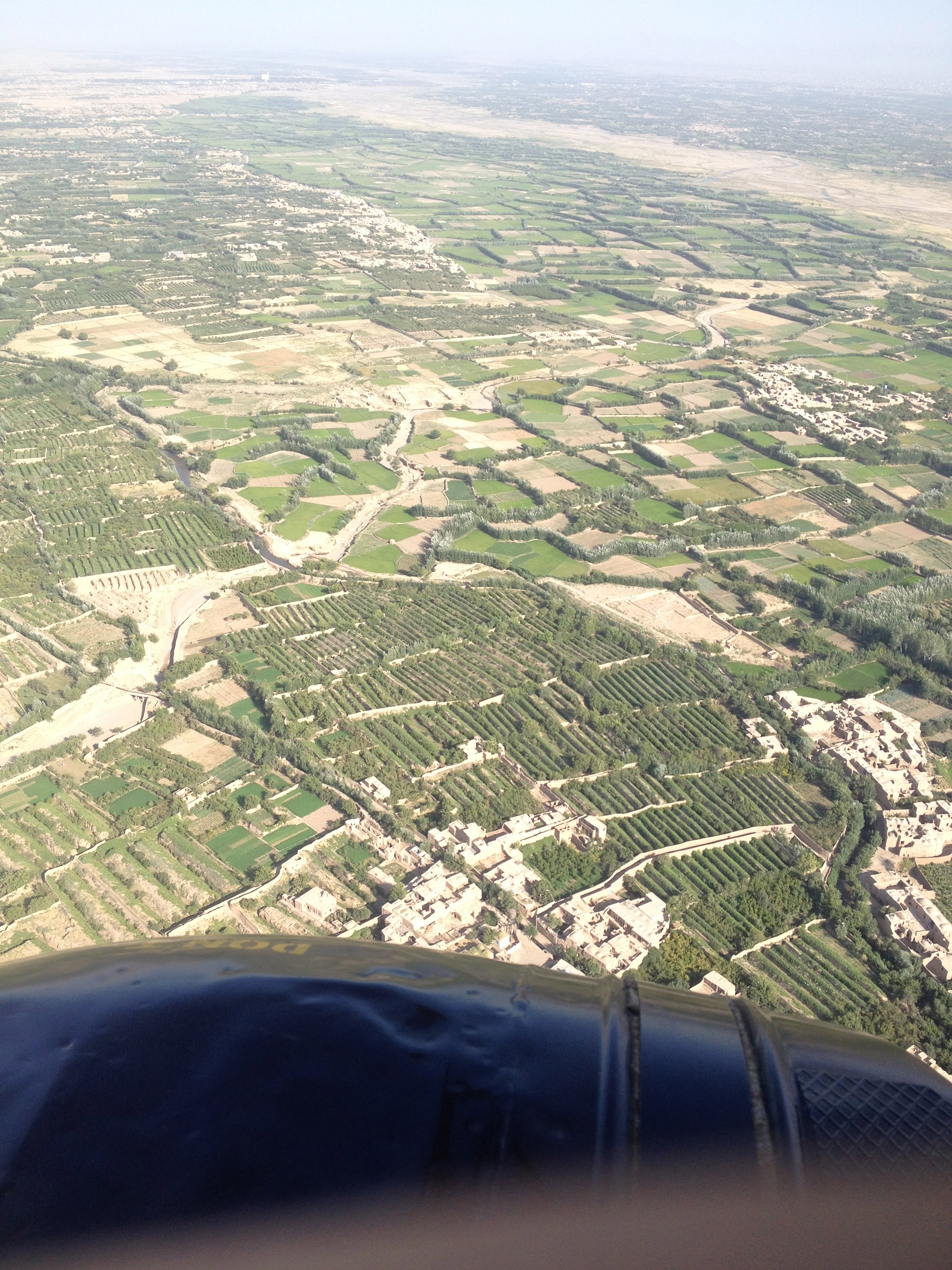My next big trip was a flight on a Bell Helicopter from Camp Stone to Shindand Air Base. It is about a 50 kilometer drive. Since that's roughly as the crow flies, it must have been a 50 kilometer flight because this Byrd flew. In addition to the uncommon event that occurred by flying this morning, another particularly odd event occurred as well. On this morning in the dining facility I passed a man named Byrd. I stopped him and said the most unimaginative thing a creative person can, "I'm a Byrd, too." A few hours later, when signing the manifest for the helicopter ride I noticed that an earlier flight had also had a man named Byrd. Could have been the same Byrd, but I'll call it two. After eating dinner at the Shindand Far East Dining Facility I passed a soldier, a Private First Class, also named Byrd. So on the day I took my first helicopter ride in a sitting position, it was a day for the Byrds.
My previous helicopter ride was one at Fort Polk during a training exercise. I had received a mock injury and rode in an M113, and a HMMWV ambulances and was about to be transported in a Blackhawk ambulance.The medics informed me that when the bird landed I would be the last put on. For those that know, this means that I am the most seriously wounded. Last on, first off. Two medics covered my face and body as the Blackhawk came down in a sandy pit of Louisiana soil. As soon as the sand blasting had begun, my liter was picked up and I was unceremoniously thrown onto the helicopter which immediately took off. No seatbelts, no strapping down, no other casualties.
As I began to notice my surroundings, I noticed that we weren't moving. A very difficult feat in a helicopter. Not the failure to move, the difficult feat is to tell you aren't moving. At my head and slightly to my left was a window so I turned as much as I could to look out. As I did, a Soviet Hind meandered into view firing blanks. It seems that with the enemy in the area there was only time to throw the most critically injured on board and the bird take off without moving through the air to minimize the chance of it getting "hit" by enemy fire.
Shortly, the Soviet craft left the area and we continued on our way to the hospital. As the familiar red cross on the tent appeared I began humming Suicide is Painless and continued my training experience of landing and being treated.
Flash forward to Shindand, Afghanistan and the only way to further connect my two rides was to purchase all eleven seasons and the original Academy Award Winning movie M*A*S*H for a half a C note. Why it isn't called an L note I'll never know.
On the flight down I took a few pictures and some video. Helicopter flights are much closer to the ground than the airlines and as a result you get a much better sense of the terrain. We were flying about 500 feet in the air, but there were times when the hills came up and we were much closer to the ground. The meandering road that connects Herat and Shindand was to our east and in sight through most of the flight.
The mountains around Camp Stone and the main road are much smaller than they appear from the confines of Stone. Of course, growing up in a town where the highest point above sea level is across the street in your Uncle Jimmy's yard at 25 feet many molehills appear to be mountains. The previously described mountains and valleys within valleys and mountains is still accurate, but the color scheme is more vibrant.
The colors still aren't the green of vegetation, granite gray, or snow-covered white of the mountains I am most familiar with. Brown still rules the day. Brown, with dark red, light tans, dark tans, khaki colors in bands and patterns that are remarkably similar from hilltop to hilltop. Some of it is sand and soil that covers rock that occasionally peeks through. A few hills even have schist-like layers of sedimentary rocks that appear to have been pushed by some geologic upheaval of long ago as if the very earth of Afghanistan has been war-torn too.
As we fly, we go over buildings and compounds. Some are occupied, some are not, some are decayed. More than a few are abandoned completely. Not just a single building here or there. Entire groups of abandoned buildings consisting of walls, doors, windows, and fences without roofs, people, or other appurtenances appear along our flight path. Round wells or entrances to some hidden kareezs remained visible but roofless, lifeless, dead. Some are barely covered in windblown sand, others have drifts as high as half a wall high. One former building site was so covered in sand that the only way I could tell it was previously occupied was because the shapes of the dunes were unnaturally manmade. But no man remained. No marks of man remained.
Speaking of the marks of man, there are tire tracks all around. Some are clearly on roads, some through wadis. You can tell some obstacles because the tire tracks concentrate on one point and take off again on the other side of ditch or fence. Sometimes the path appears to just be one lone set of tracks crossing open and empty plains. It is hard to tell if they are single tracks or well-worn ruts but for every field with tracks there are ten without a single mark of inhabitants. And then an abandoned village appears.
One of the most interesting aspects are the water features. I've tried to take pictures of some and I have described some but from the 500 foot vantage point it hits me clearly. The vegetation, the green colored rocks, the water, and the villages all form an image that exactly matches the way mold and algae grow in stagnant, slow-moving streams. The water, the land, the view is moldy.
When I typed this I was in a transient billeting tent. The wooden floor is raised off of the gravel field in which it sits. A plastic-like canvas covers plywood. The arched dome of the tent ripples with the wind. It is air-conditioned with a flexible canvas plenum unlike any I've ever seen in the States but one I've seen plenty of in Afghanistan. There are ten bunk beds in this tent, with two more male tents and three female tents across the gravel. In it there are seven men of which three are sleeping and three besides me doing something on a computer.
The wind in Shindand is incessant. For the last month it has been in what is called the 120 Days. It is 120 days of stiff winds, sometimes reaching 70 miles per hour. At times it is hard to walk because it feels the wind will take you with it. The old, rickety bunk bed on which I lay shook when the wind blew because of the tent and floor moving. It was almost like being on a boat except the pauses between rocking is longer. And no waves slapping against the hull or salt air.
The real problem with my entry on this day is that someone complimented my writing. I didn't feel I could write because knowing someone complimented my writing makes me feel like I have to perform. There is an expectation of quality now needed. It is like speaking in tongues, when you try to do it you can sound right, but it isn't the same. And yet, I typed anyway. Without feeling particularly inspired. Wanting to be particularly inspired. Scared to write and scared not to. Oh what a tangled web we weave when we first practice to entertain.
Well, I woke up and flew back to Camp Stone. When we flew down the helicopters had been flying for several hours so they came in hot, hovered, then landed. We loaded our bags, jumped on, and took off. The return flight was the first flight of the day so we loaded up and then the pilots fired up the engines. It was a weird experience to say the least.
Hearing protection is required in the cabin, so everything around you is muffled, but the sound of your own voice, or swallowing is magnified. Looking around the cabin, I noticed that of the eight passengers and three crew, all of us have some form of facial hair. Two look like they just didn’t shave, one guy had a beard that ZZ Top would be proud of, two had mutton-chop mustaches. We were all wearing body armor and Kevlar helmet and had something stuck in our ears, headphones, earphones, or ear plugs. The engine warmed up and after about 10 minutes began to slow down The pitch change was dramatic. Another five minutes and it picked up again, not long after we took off.
I had a helicopter pilot one time give me a lengthy and very poetic description of what a helicopter is. Basically it all boiled down to several things that were concentrated around an oil leak in the center where the rotor was. When the engine starts up, the whole cabin feels like it is moving not just side to side, but around in a small circle. Once it gets going, it does shake predominantly just side to side. It feels like you’re moving, then without realizing it, the shaking side to side stops. It’s still vibrating, but not left to right, just like you’re too close to a very powerful motor that’s running hard. That’s when you look out and see that you aren’t on the ground.
On this morning we took off and flew to the far side of the compound and landed again. One thing I have neglected to mention is that there are compounds within compounds. There are more compounds than a third grade English class. Almost as many run-ons, too. After a short wait, we moved up to and then along the runway. Seemed odd since we never touched the runway, but for clearing the air spaces that surround the runway it makes sense. On the way out, I noticed the American flag flying proudly over the Soviet made tower, Stalin should be rolling over in his grave.
Another interesting thing about helicopter flight is that unlike airplanes, where you are both thrown back into your seats and notice the floor sharply angle up, there is no such warning for helicopters in normal, non-defensive, flight. If you didn’t look out the window you may never realize you left.
On the way back, I began to notice things. I am becoming accustomed to the geography between Camp Stone and Shindand a bit. I noticed where Edraskan would be as it appeared, then closer to home, I could see the familiar shapes appearing from the mountains to our north and west. My touring of Afghanistan is beginning to match my knowledge of touring the US.
In order to fly on these chartered flights, we have to be on the manifest early, like 24 to 72 hours early. So, our name and information is already on a list. Then when we show up to fly, we sign a list with name, rank or grade, where we’re coming from, where we’re going, how much our bags weigh, and how much we weigh with our body armor. Then once we board we sign another list, this time with name, rank, coming, going, and last four digits of our social security number. I suspect this is to make it easy on the coroner in the event of an accident. When we landed there was one more list to sign. This one included a column for reason to visit Camp Stone. Without much thought but great ado I listed: Home.
~~~~~~~~~~~

